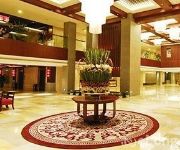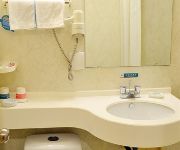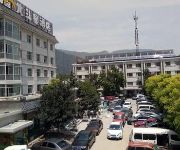Facts and Data
Webpages:
Official Unesco Page
View photos from OUR PLACE the World Heritage collection
Basis Data:
Unesco World heritage since: 1998
Size of heritage: 297 ha
- Buffer zone: 5,595 ha
Coordinates:
Longitude: 116,141°
Latitude: 39,911°
Summary
The Summer Palace in Beijing – first built in 1750, largely destroyed in the war of 1860 and restored on its original foundations in 1886 – is a masterpiece of Chinese landscape garden design. The natural landscape of hills and open water is combined with artificial features such as pavilions, halls, palaces, temples and bridges to form a harmonious ensemble of outstanding aesthetic value.
Location on Map
Show bigger map on Openstreetmap
Summer Palace, an Imperial Garden in Beijing
The Summer Palace, located 10 km northwest of Beijing, China, is a UNESCO World Heritage site renowned for its exquisite beauty and historical significance. This imperial garden, also known as Yiheyuan in Chinese, covers an area of 2.9 square kilometers and is considered one of the most well-preserved royal gardens in the world.
History
The construction of the Summer Palace dates back to the Jin Dynasty in the 12th century. However, it was during the Qing Dynasty in the 18th century that the palace reached its peak. Emperor Qianlong commissioned the construction of the garden as a gift for his mother's 60th birthday. Over the years, subsequent emperors expanded and enhanced the palace, making it a grand retreat for the royal family.
Tragically, the Summer Palace suffered severe damage during the Second Opium War in 1860 when it was looted and burned by foreign troops. However, Empress Dowager Cixi, who was deeply attached to the palace, allocated funds from the national treasury to restore and rebuild it. The reconstruction took several years and was completed in 1895.
Current State
Today, the Summer Palace stands as a testament to Chinese architectural brilliance and landscape design. It is divided into three main areas: the Court Area, the Longevity Hill Area, and the Kunming Lake Area.
The Court Area, located in the east, is the political center of the palace. It consists of magnificent halls, pavilions, and courtyards, including the Hall of Benevolence and Longevity, where emperors held important ceremonies and meetings.
The Longevity Hill Area, situated in the center, is dominated by the Longevity Hill, which offers breathtaking views of the surrounding landscape. The hill is adorned with numerous temples, pagodas, and gardens, each with its own unique charm. The most iconic structure is the Tower of Buddhist Incense, a towering pagoda that serves as a symbol of the Summer Palace.
The Kunming Lake Area, located in the west, is the largest section of the palace and covers over three-quarters of its total area. The highlight of this area is the vast Kunming Lake, which was artificially created and imitates the beauty of the West Lake in Hangzhou. Visitors can take boat rides on the lake, stroll along the lakeside promenade, or explore the various islands and bridges that dot its surface.
The Summer Palace is not only a visual delight but also a cultural treasure. It houses a vast collection of ancient Chinese art, including paintings, calligraphy, and ceramics. The palace also hosts traditional performances, such as Peking Opera and Kunqu Opera, providing visitors with a glimpse into China's rich cultural heritage.
Recognized as a masterpiece of Chinese landscape design, the Summer Palace continues to captivate visitors from around the world. Its harmonious blend of natural beauty and architectural splendor makes it a must-visit destination for those seeking to immerse themselves in China's imperial history and appreciate the country's artistic achievements.










